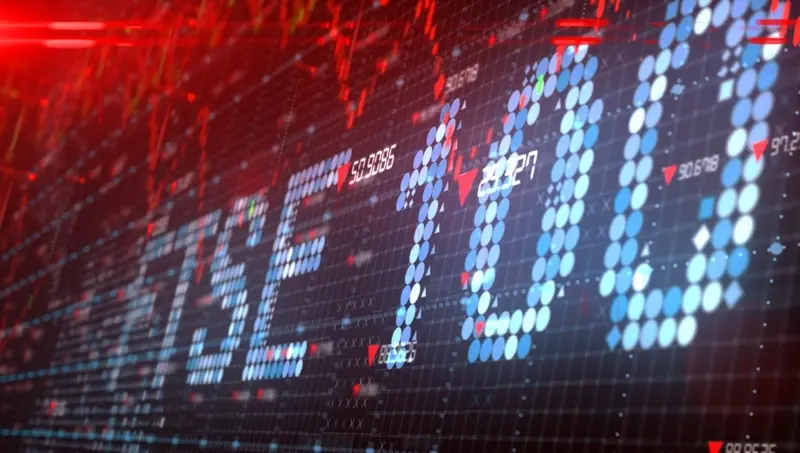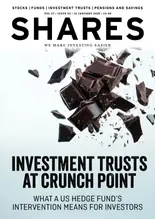
The FTSE 100 index was higher at midday on Wednesday, putting London’s blue-chip equity benchmark in position to end the year in positive territory.
The FTSE 100 was up 72.63 points, or 1.0%, at 7,545.64, as it caught up with European markets that had reopened on Tuesday.
With three days to go in 2022, the club of large-cap stocks is up 0.5% in the year so far.
The FTSE 250 was up 85.67 points, or 0.5%, at 18,915.52 on Wednesday, and the AIM All-Share was up just 0.030 of a point at 831.99.
UK mid- and small-cap stocks have not fared as well in 2022 as have their larger, dollar-earning peers in the FTSE 100. The 250 is down 21% so far in 2022, while the AIM All-Share is down 31%.
The Cboe UK 100 was up 0.9% at 754.29 on Wednesday, the Cboe UK 250 was up 0.6% at 16,396.55, and the Cboe Small Companies was up 0.9% at 13,195.92.
In London, AstraZeneca slipped 0.3% despite announcing the approval of a number of treatments in Japan.
The pharmaceutical firm said its immunotherapies Imfinxi and Imjudo have been approved in Japan for advanced liver, biliary tract and lung cancer, while its selective Bruton’s tyrosine kinase inhibitor Calquence has been approved in the country for the treatment of adults with treatment-naive chronic lymphocytic leukaemia.
In the FTSE 250, IMI edged up 0.1% as it completed its acquisition of smart thermostatic control manufacturer Heatmiser UK.
The acquisition was first announced at the beginning of November for an enterprise value of £110 million. IMI added at the time that a further £8 million could be paid based on Heatmiser’s future financial performance.
Chief Executive Roy Twite said: ‘With Heatmiser’s expertise in connected controls, we have created a significant opportunity to accelerate our growth in smart buildings.’
Elsewhere in London, Argo Blockchain shares more than doubled at midday as the firm entered into agreements under which an Argo subsidiary will sell its Helios facility in the US state of Texas to Galaxy Digitial for $65 million. Argo said the sale will reduce its debt by $41 million and simplify its operating structure. It will also improve Argo’s liquidity position, the firm said.
However, at their current price of 7.47 pence, Argo shares remain well short of their 52-week high of 101.00p.
On AIM, Polarean Imaging jumped 27% after it secured approval from the US Food & Drug Administration for its drug device combination product, Xenoview, for evaluation of lung ventilation in adults and children aged 12 years and older.
Polarean Chief Executive Richard Hullihen says: ‘Approval of Xenoview represents a major step forward in modern respiratory imaging and we are proud to have pioneered this exciting new technology for clinical use. The commercial team at Polarean is prepared to rapidly launch Xenoview for clinical application.’
In European equities on Wednesday, the CAC 40 in Paris was up 0.2%, while the DAX 40 in Frankfurt was marginally higher. The indices had added 0.7% and 0.4%, respectively, on Tuesday.
The pound was quoted at $1.2068 at midday on Wednesday in London, higher compared to $1.2027 at the close on Friday.
The euro stood at $1.0642, flat against $1.0641. Against the yen, the dollar was trading at JP¥133.86, higher compared to JP¥133.54.
Stocks in New York were called to open higher on Wednesday. The Dow Jones Industrial Average was called up 0.2%, the S&P 500 index up 0.2%, and the Nasdaq Composite up 0.1%. The Dow closed up 0.1% on Tuesday, while the S&P 500 and Nasdaq closed down 0.4% and 1.4% respectively.
Swissquote analyst Ipek Ozkardeskaya said that US stocks remained under ‘decent pressure’ despite reopening news from China as a surge in Chinese demand will ‘certainly’ boost inflation through higher energy and commodity prices.
‘If the Chinese reopening story is positive for oil and commodity prices - and for the massively battered Chinese stocks, it’s bad news for global inflation,’ Ozkardeskaya said, meaning more interest rate hikes.
Brent oil was quoted at $84.55 a barrel at midday in London on Wednesday, down from $84.89 late Friday. Gold was quoted at $1,803.53 an ounce, lower against $1,812.04.
Russia issued a decree Tuesday to ban oil sales to countries and companies that comply with a price cap agreed by Western countries in response to Moscow’s offensive in Ukraine.
‘The supply of Russian oil and oil products to foreign legal entities and individuals is prohibited if the contracts for these supplies directly or indirectly’ are using a price cap, the presidential decree said.
The decree will be in effect from February 1 until July 1.
The ban has added to anxieties around supply. However, the news that China plans to reopen at the same time means oil demand is set to surge.
China says it will resume issuing ordinary visas and passports in another big step away from anti-virus controls that isolated the country for almost three years, setting up a potential flood of millions of Chinese going abroad for next month’s Lunar New Year holiday.
‘China’s reopening is helping assuage recessionary fears driven by a more protracted restrictive Fed policy. Indeed, trimming a tail risk [for oil prices] rather than forcing a fundamental shift in demand at this point,’ commented Stephen Innes at SPI Asset Management.
Still to come in Wednesday’s economic calendar, there is the US pending homes sales index at 1500 GMT.
By Heather Rydings, Alliance News senior economics reporter
Comments and questions to newsroom@alliancenews.com
Copyright 2022 Alliance News Ltd. All Rights Reserved.




